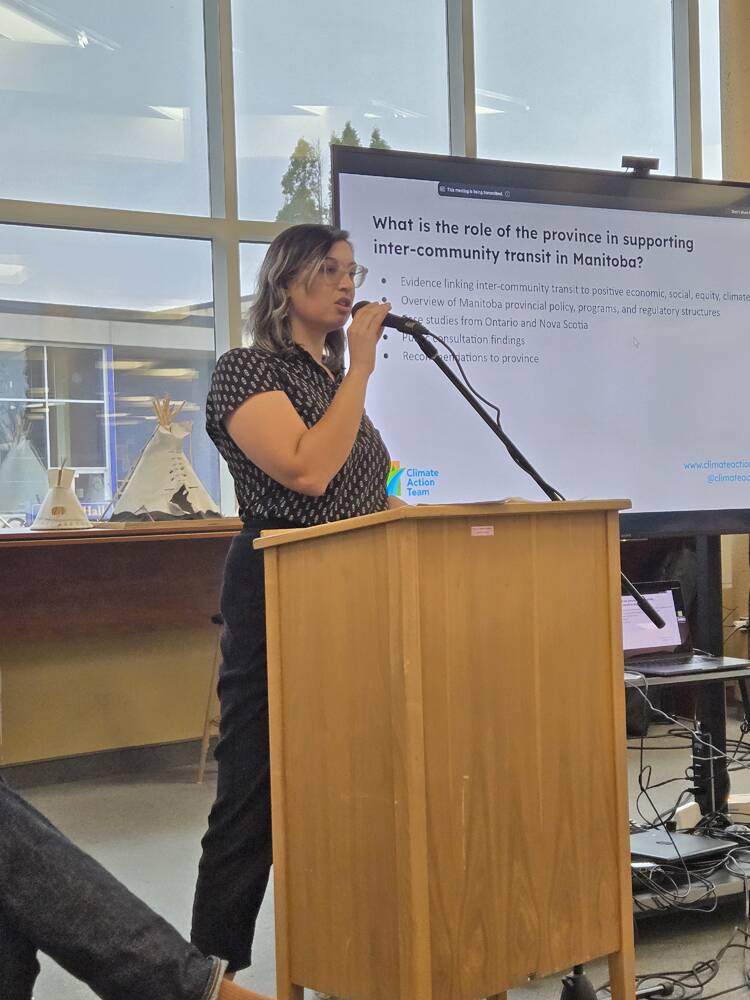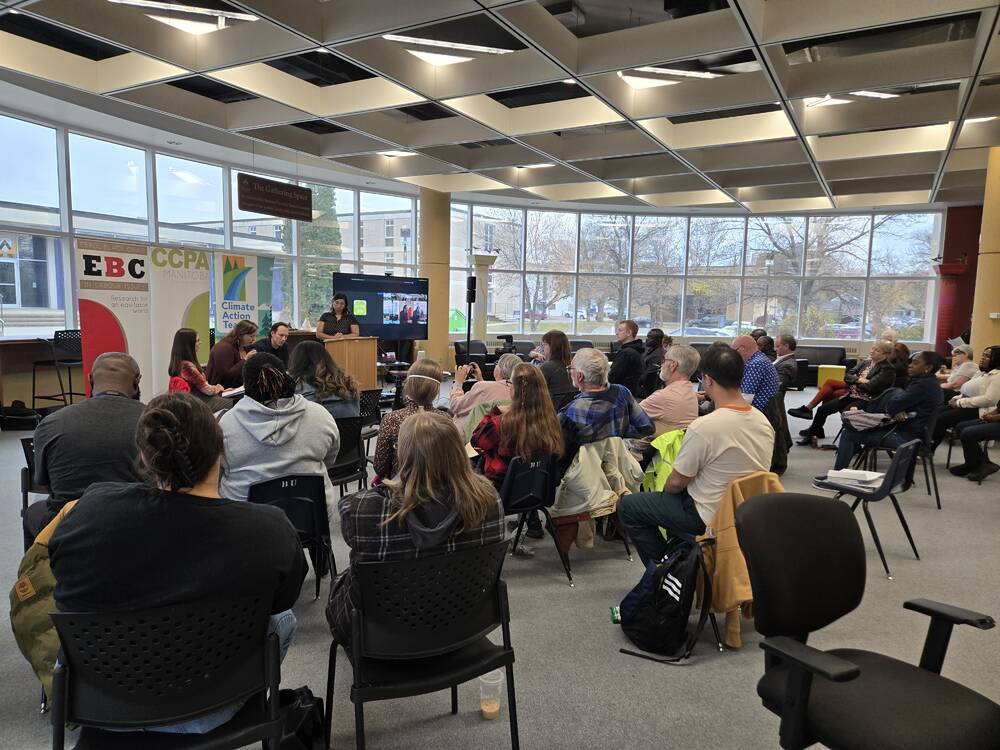Friendly Manitoba is a lot less hospitable in rural areas for those who can’t drive themselves around.
That’s a problem, say rural development experts who spoke recently at a Brandon University event. Research through the Climate Action Team, a coalition of environmental organizations, aims to “envision, investigate and promote a road to climate resilience” in Manitoba.
Why it matters: Research presented in Brandon Oct. 18 noted a significant shortage of inter-community transit options, particularly those that are both accessible and affordable.
Read Also

Big changes ahead for dairy market
Dairy consumers put bigger eyes on protein, while CUSMA review looms large for Canada’s dairy farmers
Hannah Muhajarine, a policy researcher with the group, said the absence of a robust transit network disproportionately affects seniors, people with mobility issues, low-income residents, newcomers and family members who are often asked to provide transportation. Indigenous people and women are also less likely to have access to a vehicle, she noted.
“The main guiding question for this region research was, ‘what is the role of the province in supporting inter-community transit in Manitoba?’” Muhajarine said.
Doug Ramsey, chair of Brandon University’s rural development department, said rural residents face most of the same general challenges as those who live in cities. Their communities have aging populations, they must find ways to accommodate people with disabilities, and some struggle financially.

“That’s the first element that I think is important in this report,” Ramsey said, referring to work presented by Muhajarine. “The second is … 39 per cent of our carbon footprint in Manitoba is transportation. Public transit is super important.”
Muhajarine agreed.
“Having rural transit in place is really crucial to help (marginalized people) access those services, health care, as well as just participate in community life and the economy.”
As a consequence, she noted, those groups may experience negative effects on personal health, income, job opportunities, social connections and overall well-being. They are also local customers and community members, so their inability to fully participate in local life is detrimental to businesses and community.
“People talked about community members being forced to leave the communities, especially seniors, when they lose the ability to drive, have to move, perhaps to Winnipeg or another urban centre,” Muhajarine said.

Health issues and health-care expenses rise as people struggle to access appointments, particularly for ongoing care and check-ins, she added. Economic and psychological effects occur when people are unable to leave their communities or travel freely and that affects relationships and social interactions.
In line with the environmental focus of her organization, Muhajarine also noted the impact on greenhouse gas emissions.
“We argue that rural transit should be discounted as a climate solution too. That can help reduce the need for individual vehicle travel.”
The report also suggested that better rural transit could reduce household car ownership.
Solutions
The Climate Action Team’s consultations with rural Manitobans showed that available options focus more on seniors and those with mobility challenges, while newcomers and low-income residents are generally left out.
The private sector has a role in filling the gap, the group said, but privately offered serves are often not sustainable, affordable or consistently safe. That’s where stricter government regulation could come in.
On the public side, the team argued for services owned and operated by municipal entities and non-profits, supported by more provincial funding and co-ordination.
Those organizations are already on the forefront, attendees heard, but minimal provincial support curbs the breadth of operations. The report suggested fostering more regional partnerships to strengthen local initiatives.
“(We) looked at case studies from Nova Scotia and Ontario and how those provinces are running fairly successful rural transit programs and initiatives, as well as an overview of the history of Manitoba rural transit and the surrounding funding and program and regulatory structures,” Muhajarine said.
Recommendations to the province include the creation of regional transportation plans, as well as establishing a dedicated provincial staff position focused on inter-community transportation. That role would facilitate better co-ordination across various government departments.
Other suggestions included a rural transportation symposium, a provincial network for stakeholders in inter-community transit, and training and resources for rural municipalities and public sector organizations.
The province should also consider creating an inter-community transportation program and require service providers to share data on ridership, scheduling, revenue and other metrics, which would help with data collection and coordination.
The team report also said the province should collaborate with the federal government to ensure that Manitoba communities can access rural transit funding. It said inter-community transit should be woven into future green provincial transportation policy.
















